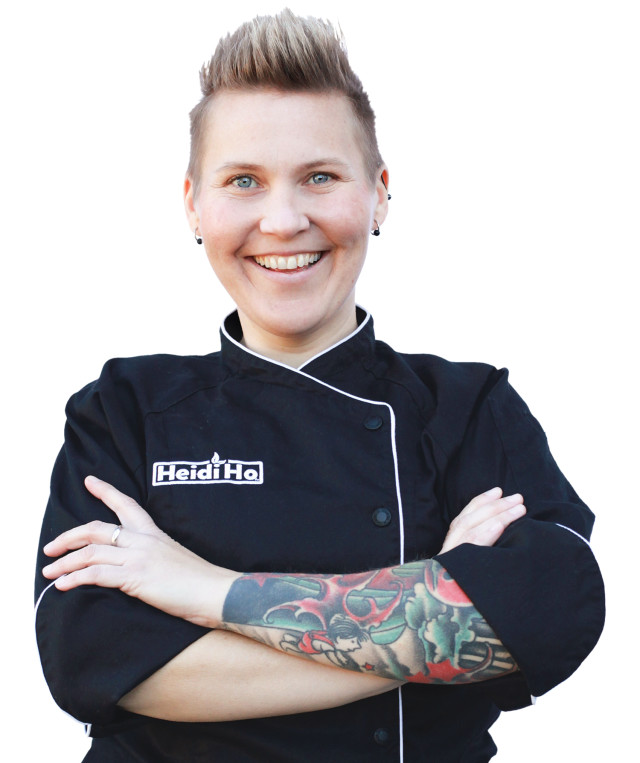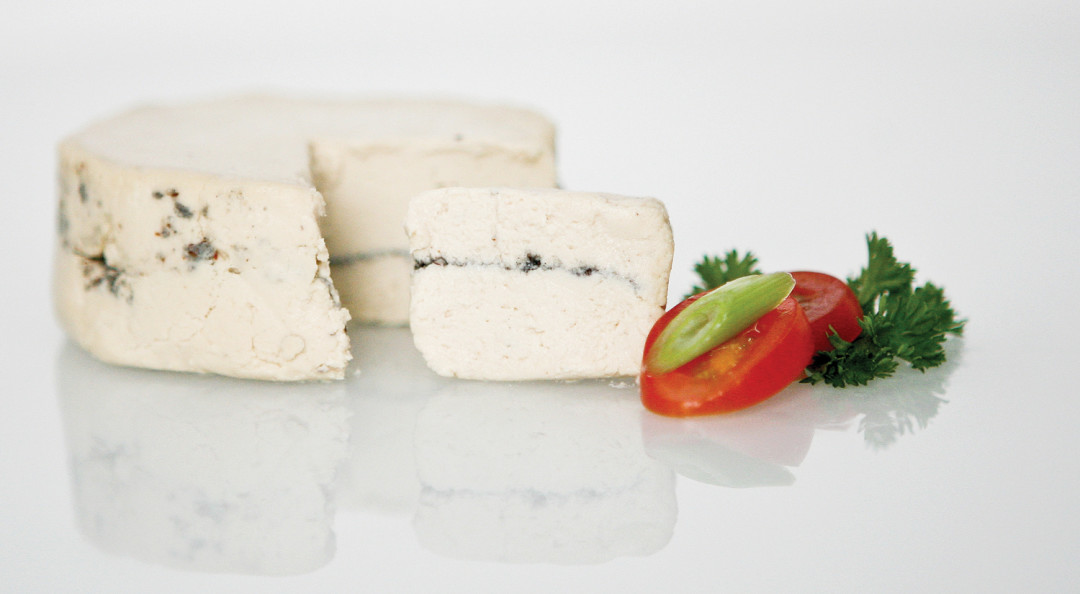Vegan Cheese for the Omnivorous Masses

Image: Heidi Lovig
"I’m here because Heidi Ho is the future of cheese!” Heidi Lovig boomed to a roomful of television cameras. “What if I told you that you could eat as much cheese as you want without the problems?”
This was Lovig’s pitch to the five judges—and 7 million viewers—on an episode of ABC’s Shark Tank last November. (Think American Idol, but for inventors.) The sharks ate it up. Three years after debuting her dairy-free cheese, Lovig closed the fastest deal in the history of the reality show, selling 30 percent of her company to judge Lori Greiner after six high-decibel minutes. Three days after the episode aired, the Heidi Ho website temporarily shut down after receiving 7,500 orders in 72 hours.
“Prior to Shark Tank, we had $140,000 in sales in 2014,” says Lovig, 34. “In the last six weeks of the year, we did another $200,000. We had seven people on our team, making it a gallon at a time.”
Almost a year later, Lovig’s 12 employees prepare their product in 20-gallon batches in a new 6,000-square-foot facility in Northeast Portland, pumping out 10,000 tubs a week to stock the shelves of nearly every Whole Foods, Natural Grocers, and Sprouts in America. Lovig says she could not have fathomed all this five years ago, when she first sampled every commercially available cheese substitute and found them all lacking.

Image: Heidi Lovig
“They weren’t made of real, high-quality food,” she reflects. “I thought there had to be a better way to use nutritious ingredients.”
Heidi Ho’s line of cheeze sauces are made with organic puréed vegetables sourced from Lovig’s old neighboring stands at the PSU farmers market. And if pouring a carrot-chia-cashew blend on your nachos sounds like a parody of deprived, salad-nibbling vegans, consider this: more than half of Heidi Ho consumers don’t follow a plant-based diet. Free of dairy, gluten, soy, and cholesterol, the products appeal to everyone from steak-loving Crossfitters to health-conscious shoppers and the country’s estimated 40 million lactose intolerants.




